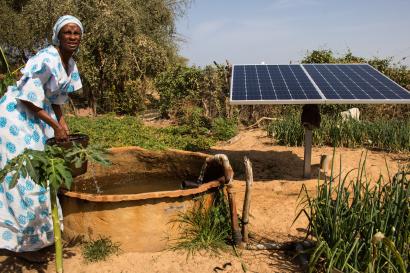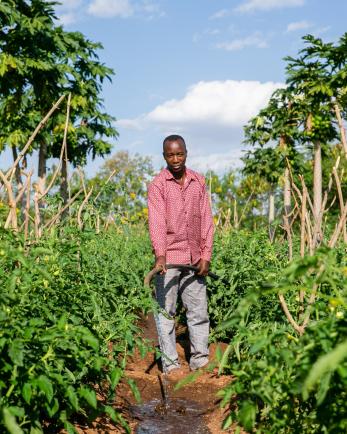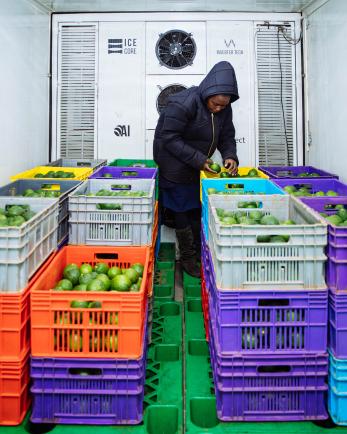Resilient agriculture

Our vision is a world where food systems are productive, efficient, climate-smart and sustainable through clean energy. The United Nations underscores the need to double food production by 2050 to match the surging global population.
Africa holds 65% of the world’s untapped arable land, yet its contribution to worldwide agriculture is disproportionately small. Just 2% of the continent’s fertile land benefits from irrigation, while up to 70% of perishables are lost post-harvest due to inadequate technologies and infrastructure. Leveraging renewable energy technologies such as solar irrigation and refrigeration is pivotal in addressing these challenges. These innovations enhance yields, reduce losses and ultimately help to strengthen food security.
Across agricultural and livestock value chains, we promote private sector-led, equitable access to essential Productive Use of Renewable Energy (PURE) equipment, including provisions for warranty, maintenance and after-sales services.
These span solar water pumps and irrigation systems that enhance crop yields and ensure consistent production even during dry spells; solar refrigeration and cold storage facilities that prevent spoilage and extend the shelf life of perishable produce, reducing post-harvest losses; and processing equipment, such as mills, grinders and dryers that increase the value of raw agricultural produce, transforming them into higher-value products and boosting income for farmers. We further support the growth and development of enterprises serving the PURE market by addressing challenges relating to building effective product distribution channels, proving and adapting business models, and accessing finance.

